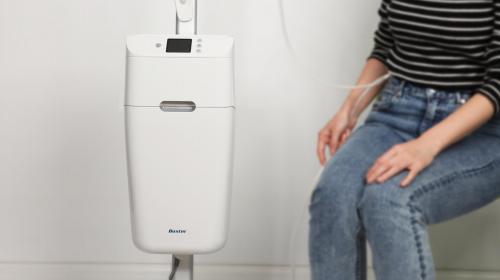
IDC
Everest Dry Powder Inhaler
Dry powder inhaler with
a rapid path to production
Utilising thorough research methodologies with an iterative design process to rapidly develop a production-ready device.
Rapid development with a limited time-frame
Within 9 months we were able to reach a pre-production level design. The quick turnaround of this complex design was enabled by a thorough investigation of standardised drug delivery mechanisms.
Part of the challenge was also to identify other opportunities for improvement with the product, including ergonomics and user experience as a whole. The design was taken to detailed engineering and pre-production sample reviews.

Defining the visual identity of the product presented a unique challenge in that it had to be familiar to consumers, yet distinct from the rest of the market. Modifications to colour, texture, and form gave the design a unique personality, but by keeping conventional gestures of use the product remained intuitive.

Preparing for manufacture
A comprehensive review ensured that the required design details had been captured. Subsequently, 2D CAD drawings enabled us to specify tolerances appropriate for manufacture and perform stack analyses. Material grades for individual parts were identified according to their respective manufacturing processes and mechanical interactions.This level of detail means we can communicate 3D data with a high level of precision, making for a smooth transition to manufacture. It also means that concepts can be submitted for approval to regulatory bodies such as the FDA.

IDC's involvement in the development of Everest:
- Competitor analysis
- User research
- Technical review
- Industrial design
- Colour, material and finish
- Material grade specification for FDA approval
- Prototype manufacture (SLA)
- Full CAD design for manufacture
- Metrology & tolerance stack analysis
- 2D Engineering drawings
- Pre-production sample reviews

Sign up to receive our top resources on product development and innovation.








